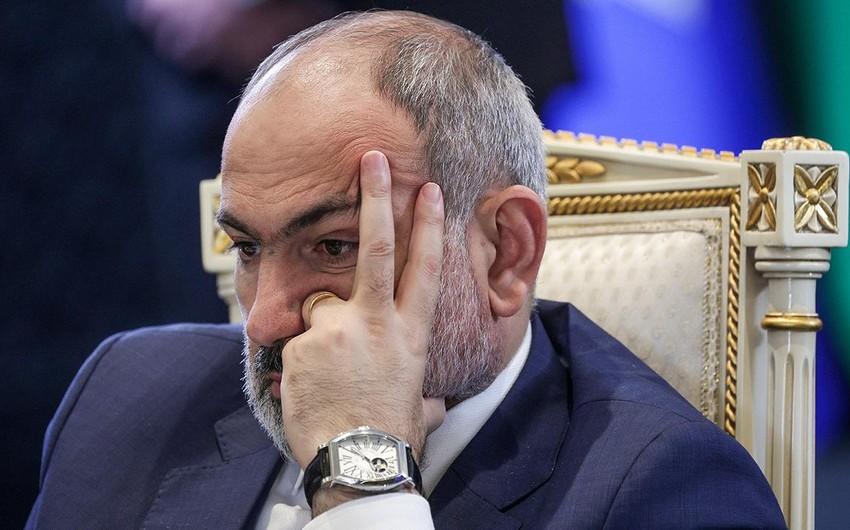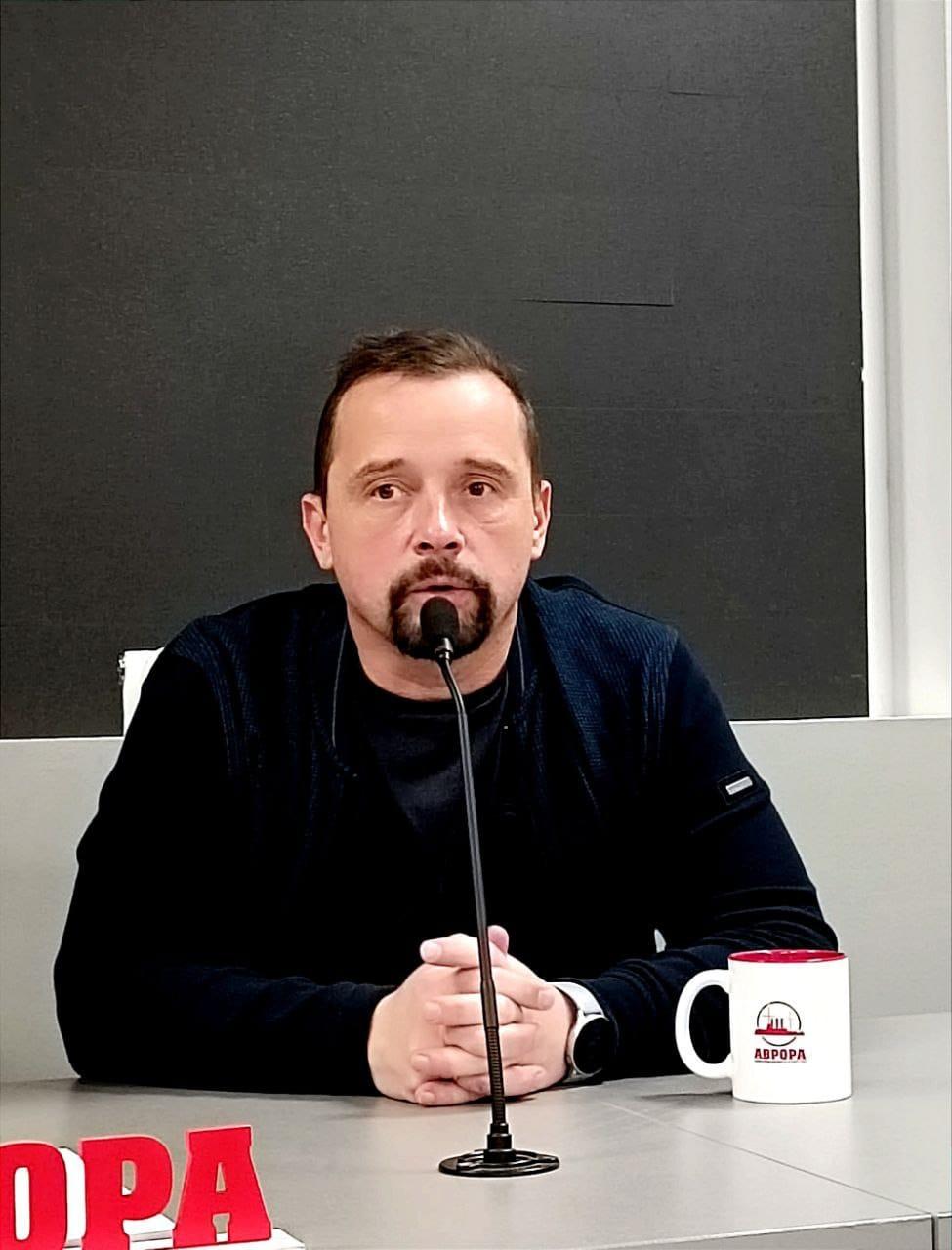Armenia's sparring with Russia crosses red line Yerevan forgets that might is right
Armenian Prime Minister Nikol Pashinyan seems to have finally decided to go belligerent against Russia, having got his Western partners to back him up. He made several negative remarks about Russia at a meeting with representatives of the Armenian community in Munich. For example, Pashinyan said that since there is no corresponding clause in the November 9, 2020 statement confirming this fact, Russia cannot control communications in Armenia.
"Paragraph 9 of the Trilateral Declaration does not state that the Russian Federation can control anything on our territory," Pashinyan said, referring to the document whose key provisions have remained on paper due to Armenia's own destructive policies.
As we know, it is Armenia, despite Azerbaijan's efforts, that is blocking the opening of the main transport routes in the region, the issues of demarcating and delimiting borders and, consequently, the signing of a comprehensive peace agreement with Azerbaijan, which Russia is insisting on. More broadly, Armenia has consistently accused Russia and Azerbaijan of violating paragraph 9 of the Tripartite Declaration. Last November, Eduard Sharmazanov, a member of the executive committee of the former ruling Republican Party, tried to convince the international community that Armenia's interests had not been taken into account in the Trilateral Declaration.
"At least one party, Azerbaijan, continues to insist on implementing point 9 of the document. At least one party - Azerbaijan - continues to insist on the implementation of the ninth point of the document, and the facilitator - Russia - is also interested in this point being activated in the event of the unblocking of the road to Nakhchivan and the control of the road to Nakhchivan by the Russian FSB," the former vice-speaker of the Armenian National Assembly complained at the time.
And now, according to Pashinyan, "the reference to the ninth point of the trilateral declaration is no longer relevant, as both Russia and Azerbaijan have completely violated their obligations under the previous points, and as a result, there are no Armenians in Nagorno-Karabakh today".

Notably, this is not the Armenian Prime Minister's only complaint against Moscow. Expressing his dissatisfaction with the peacekeeping contingent, which he believes is responsible for the departure of Armenians from Karabakh, Pashinyan said "Yerevan is not Moscow's ally on the issue of Ukraine".
"I've long said that Armenia is not allied with Russia regarding Ukraine. And this is our sincere position. It hurts us very much that we cannot influence this situation. Ukrainians are our friends," he declared, sending two clear messages.
First, that Armenia is no longer an ally of Russia. It does not support and even condemns the war in Ukraine, and membership in the CSTO and EAEU is a mere formality.
Secondly, Pashinyan tried to reaffirm his commitment to European integration. One of the main criteria for this is the condemnation of Russia's policy in Ukraine. During his visit to Georgia last year, the EU's High Representative for Foreign Affairs and Security Policy, Josep Borrell, clearly stated: "The EU supports Ukraine and we will support Ukraine as long as it takes. The EU welcomes Georgia's clear position in international fora in this regard. It is crucial to coordinate our efforts with our closest partners to isolate Russia internationally". In other words, Borrell made it clear to Georgia that it will only get EU candidate status if it takes a clear position on the Russian-Ukrainian war. And since Armenia also has EU aspirations, there is no doubt that Pashinyan's anti-Russian thesis on Ukraine communicated Yerevan's clear position to the West.
Since Nikol Pashinyan came to power, Russia has been attacked and rebuffed. In this context, Sergey Lavrov's office has repeatedly noted that the Armenian leadership is trying to shift the responsibility for its domestic and foreign policy failures onto Russia, which is unacceptable to Moscow. The Russian Foreign Ministry openly states that the destructive processes in Yerevan are being instigated by the West, whose aim is to separate Armenia from Russia. On the eve of the day, the Federation Council also spoke in the same vein. Senator Andrei Klimov said: "Pashinyan's statements are not directed at Russia, but only at the West. In this way, he is trying to win over his foreign interlocutors. The end result will be neither good for Pashinyan nor for the Armenian people".
Predictably, the sensitive Ukraine issue has not gone unnoticed by Russian leaders. Kremlin spokesman Dmitry Peskov commented: "In fact, we have diametric views on what is happening in Ukraine and on the conflict in Ukraine. This is a well-known position of our Armenian friends. We do not agree with it and we will persistently explain our rightness."
Peskov's comments are a wake-up call, signalling that Yerevan won't manage to get away with its anti-Russian demarches. Russia clearly understands that it prefers to discuss fundamental issues on the regional agenda with Azerbaijan because Armenia has become a puppet in the hands of the West.
An example of this is a recent interview with TASS by Deputy Foreign Minister Mikhail Galuzin, in which he clearly stated that given the radical change in the situation in Karabakh, the conditions for the presence of Russian peacekeepers are being discussed only with the Azerbaijani side. According to Galuzin, the dialogue with Azerbaijan is constructive. "We are solving all the problems in a mutually acceptable way. As for the extension of the Russian peacekeeping contingent's powers after November 2025, it will depend on the situation in the region, the demand for its continued presence and relevant agreements with Baku," the deputy foreign minister said.
Moscow takes note of Yerevan's every blunder and no doubt draws the appropriate conclusions.

Commenting on the Armenian prime minister's provocative statements, Alexei Nezhivoy, head of the Russian Laboratory of Political and Social Technologies, told Caliber.Az that they were all a manifestation of solidarity with the West.
"It is not surprising that 'friends of Armenia' like France, which is being pushed out of the Sahel, are forcing all the negative aspects against Russia. The problem for Armenia and France is that their sting has been already removed, and they're left to hiss and shout. For the West and its vassals, it is all Russia's fault, the barbarians' fault. Soon we will hear that the Russians drank the blood of Armenian babies," Nezhivoy said.
In his opinion, a considerable group of Western analysts have probably been working on the unresolved issues that are open to criticism.
"Armenia is preparing the ground for a renunciation of the treaty. The only problem is that abrogating the treaty automatically means abrogating the law of the strong, and that's what Armenia has a problem with, just like its Western friends who gave their weapons to Ukraine. The world is divided into two parts. And Armenia under Pashinyan has already made its choice," Nezhivoy said.








